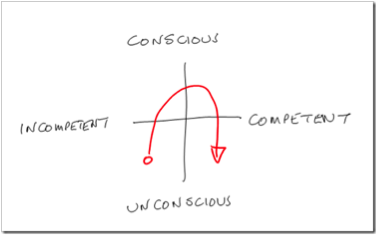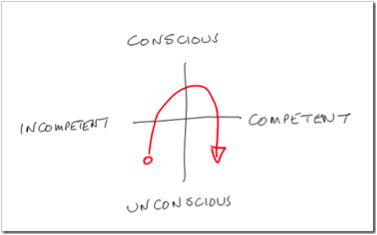CEO Blog - Advice for CEOs on growth and scaling
Situational Competence: A Requirement for International Management

Small and mid-size businesses are becoming increasingly international. This means that CEOs who want to grow need to gain expertise in understanding employees and clients from different cultural backgrounds.
We all make assumptions. These assumptions are based on our background, our education and our environment. But, if we want to be successful working with people from different cultural backgrounds, we need to train our brains to suspend judgments and assumptions, or at least if we are making them, to "assume the best intentions" until there is compelling evidence that proves otherwise. Still, assuming the best can be very difficult to do.
In 1998, I moved to Argentina as Chief Marketing Officer for a new subsidiary of a major US insurer. When I thought about diversity, I usually thought about gender, race or religion. It was when I actually moved abroad, that I started understanding "cultural diversity". I saw, over and over again, how many assumptions I made about others based on my background. I remember a speaker, long ago, who talked about the four stages of learning:
 Unconscious Incompetent
Unconscious Incompetent- Conscious Incompetent
- Conscious Competent
- Unconscious Competent
The Unconscious Incompetent didn’t even know what she didn’t know. Then in the second stage she became conscious of what she didn’t know; what knowledge she lacked. In the third stage, she had learned what to do, but it was a conscious effort to do it. She had to really concentrate on doing it as she had been taught. Then, in the final stage, she was a natural – and she didn’t have to think about doing or knowing it – it was just there.
In The Seven Habits of Highly Effective People by Steven Covey, the fifth habit is “Seek first to understand; then to be understood.” To be successful in a culturally diverse environment, we have to work first on understanding ourselves and our own assumptions. Then work on understanding others. To do this, we need to seek out diverse perspectives. We need to ask questions of our colleagues from different backgrounds. We need to listen to the answers to those questions. Finally, if we make assumptions – and it is nearly impossible to avoid them – we need to train ourselves to assume the best. As we develop more understanding, we will learn to appreciate and celebrate diversity. And that will result in a much more successful company – for each of us and our employees!
- Barbara Fowler, CMO
Topics: Business Leadership and Strategy, CEO Marketing Vision, Strategic Insights, International Management
Sat, Aug 6, 2011Related Articles

- Press Releases
- Careers
- Case Studies
- Marketing Consultant Company
- Marketing Strategy Consultants
- Marketing Plan Consultants
- B2B Marketing Consultants
- Virtual CMO
- Marketing Consultant Outsourcing
- Fractional CMO
- What is a Fractional CMO
- Healthcare Marketing Consultant
- Marketing Consultant Houston TX Texas
- Marketing Consultant Texas TX
- Marketing Consultant Bay Area
- CEO Blog
- Ebooks Plus
- Executive Marketing Consultants
- Product Marketing Consultants
- B2C Marketing Consultants
- Virtual Marketing Consultants
- Senior Marketing Consultants
- Temporary CMO
- Hire a CMO
- Fractional CMO Salary
- Fractional CMO Responsibilities
- Marketing Consultant Austin TX Texas
- Marketing Consultant Dallas TX Texas
- Marketing Consultant San Antonio
- Helping Private Equity
- Private Equity Blog
- Leadership Team
- Privacy Policy
- Business Marketing Consultants
- Strategic Marketing Consultants
- Marketing Technology Consultants
- Sales and Marketing Consultants
- CMO Job Description
- CMO Salary
- Fractional CMO Agency
- Fractional CMO Services
- CPG Marketing Consultant
- Marketing Consultant San Diego
- Partners
Houston, TX 77056
© 2023 Chief Outsiders


